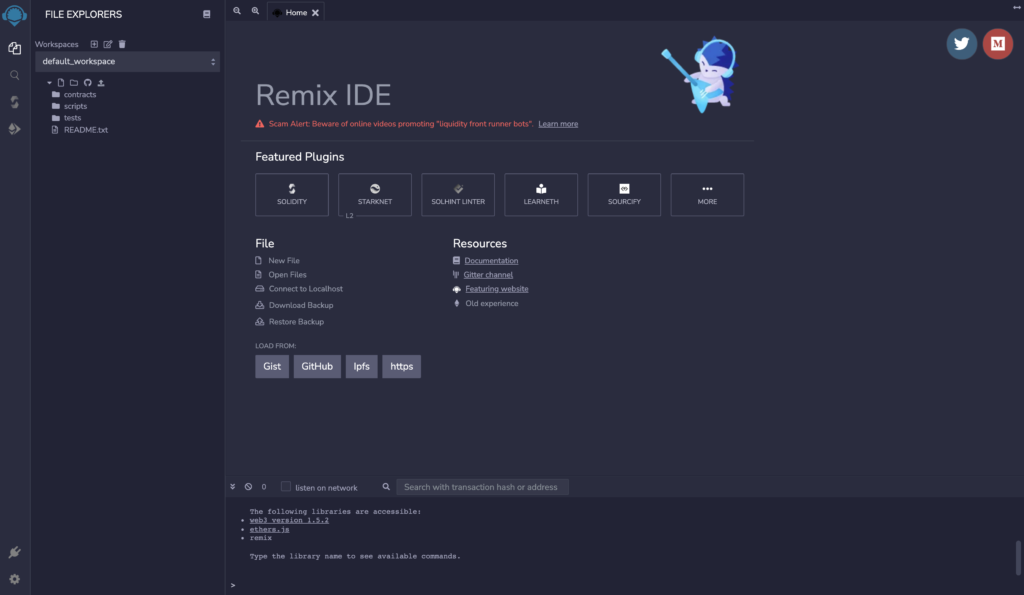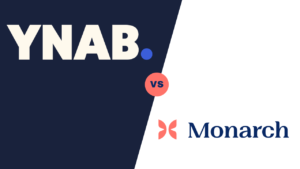Blockchain application development is rapidly transforming how industries operate, offering unprecedented security, transparency, and efficiency. As this technology continues to evolve, it becomes increasingly important for developers and industry professionals to understand and leverage its potential. This comprehensive guide delves into the essentials of blockchain technology, highlights key tools and platforms, and explores the impact of blockchain across various sectors. From beginners looking to enter the field to experienced developers aiming to enhance their skills, this article provides valuable insights and resources to help navigate the complex landscape of blockchain development. As we explore the myriad applications and ongoing innovations within this space, it’s clear that blockchain technology is not just a passing trend but a foundational shift that will shape the future of digital transactions and information management.
Table of Contents
Fundamentals of Blockchain Technology
Understanding the fundamentals of blockchain technology is essential for anyone interested in the field of blockchain application development. This foundational knowledge not only provides the context needed for further study but also helps developers appreciate the complexity and potential of blockchain solutions.
What is Blockchain?
At its core, blockchain is a distributed database or ledger that is shared among the nodes of a computer network. As a database, blockchain stores information electronically in digital format. Its uniqueness primarily lies in its security and decentralization features.

Source: Blockchain Architecture Basics: Components, Structure, Benefits & Creation
Key Characteristics of Blockchain
- Decentralization: Unlike traditional databases managed by a central authority, blockchain technology allows data to be stored across a network of independent nodes. This decentralization reduces the risk of centralized processing and potential points of failure.
- Immutable Records: Once a transaction is recorded on the blockchain, it cannot be altered without altering all subsequent blocks and the consensus of the network. This immutability makes blockchains very secure and trustworthy.
- Transparency: Transactions on the blockchain are visible to all participants and cannot be changed. This transparency helps build trust among users and ensures that all transactions are done openly and fairly.
- Consensus Algorithms: Blockchain uses consensus models like Proof of Work (PoW) or Proof of Stake (PoS) to agree on the validity of transactions. This consensus prevents fraud and ensures all participants agree on the state of the ledger.

Source: Review of the Six Types of Blockchain Consensus Mechanism
How Blockchain Works
The process of blockchain application development often revolves around creating and verifying blocks of transactions. Here’s a simplified breakdown:
- Transaction Data: A transaction occurs when a blockchain user initiates a process, like transferring cryptocurrency, creating a contract, or sharing information.
- Block Creation: Once a transaction is made, it’s verified by nodes in the network and combined with other transactions to create a new block of data for the ledger.
- Block Verification: The new block is sent to every node in the network. Each node must verify the block’s validity according to the consensus rules established by the blockchain.
- Adding to the Chain: Once verified, the block is added to the existing blockchain. It is now immutable and can serve as a permanent, unalterable record.
- Completion: The transaction is complete, and the update is visible to all network participants.

Source: How to Build your own Blockchain Architecture
Understanding these fundamentals is crucial for anyone embarking on blockchain application development. By grasping the basic principles and mechanisms of blockchain technology, developers can build more effective and innovative applications. This foundational knowledge not only equips developers with the necessary skills but also deepens their understanding of the potential challenges and opportunities in blockchain technology.
Advancing Your Career with Blockchain Application Development
Blockchain technology is not just a trend; it’s a revolutionary shift that offers substantial career opportunities across various industries. For professionals looking to enhance their career prospects or pivot to a technology-focused role, blockchain application development offers a path to significant advancement. Here’s how understanding and developing skills in blockchain technology can propel your career to new heights.
Growing Demand for Blockchain Skills
The demand for blockchain expertise is surging across multiple sectors, including finance, healthcare, supply chain management, and more. Companies are actively seeking individuals who can understand and implement blockchain solutions to enhance efficiency, security, and transparency.

Benefits of Blockchain Expertise in Your Career
- Highly Competitive Salaries: Due to the scarcity of qualified professionals and the technical complexity involved, blockchain developers and specialists command high salaries compared to other tech fields.
- Diverse Opportunities: Skills in blockchain technology open doors to various roles, including blockchain developer, solution architect, project manager, consultant, and more within tech firms, consulting companies, and startups.
- Innovative Work Environment: Working with blockchain puts you at the forefront of cutting-edge technology. This environment fosters innovation and creativity, allowing you to work on projects that redefine business practices and consumer interactions.
- Professional Growth: The blockchain field is evolving rapidly, offering continuous learning opportunities. Staying updated with the latest technologies and applications can significantly boost your professional growth and keep you relevant in the job market.
How to Advance Your Career in Blockchain
- Education and Training: Start with fundamental courses and progress to advanced certifications in blockchain technology. Look for programs that offer practical, hands-on learning experiences to build your skills effectively.
- Networking: Engage with the blockchain community through forums, conferences, and workshops. Networking with other blockchain professionals can provide insights into industry trends, job opportunities, and collaborations.
- Practical Experience: Gain practical experience by working on blockchain projects. This can be through internships, freelance projects, or contributing to open-source blockchain initiatives.
- Specialization: Consider specializing in a niche area within blockchain, such as smart contracts, decentralized finance (DeFi), or blockchain security. Specialization can make you particularly valuable to employers seeking specific expertise.
- Stay Updated: The blockchain space is dynamic, with new developments occurring regularly. Staying informed about the latest trends, technologies, and regulatory changes is crucial.

Advancing your career with blockchain application development not only enhances your professional capabilities but also positions you in a rapidly growing field with vast potential. Whether you are just starting your tech career or looking to enhance your current path, blockchain technology offers a robust platform for development, innovation, and high demand across industries.
Comprehensive Review of Blockchain Development Platforms
As blockchain technology continues to evolve, the choice of development platforms plays a critical role in the successful implementation of blockchain projects. These platforms provide the necessary tools and environments for developers to create, test, and deploy decentralized applications (DApps) and smart contracts. Here is a comprehensive review of some of the leading blockchain development platforms, each offering unique features and capabilities suited to different types of blockchain application development.
Ethereum
Ethereum is perhaps the most well-known and widely used blockchain development platform. It’s especially favored for its robust support for smart contracts, which are self-executing contracts with the terms of the agreement directly written into code.
- Strengths: Ethereum has a large and active development community, extensive documentation, and a solid framework for DApps and smart contracts.
- Challenges: High gas prices and network congestion are issues, although upgrades like Ethereum 2.0 are addressing these problems.
- Ideal for: Developers looking to create versatile DApps or issue their own cryptocurrency tokens.

Hyperledger Fabric
Hyperledger Fabric is an open-source blockchain framework hosted by the Linux Foundation. It’s designed for use in enterprise environments, which means it prioritizes modularity and security.
- Strengths: It supports plug-and-play components and private transactions, which are essential for businesses that require confidentiality.
- Challenges: There’s a steeper learning curve due to its sophisticated and modular architecture.
- Ideal for: Enterprises needing a scalable and customizable blockchain solution with a focus on privacy.
Binance Smart Chain
Binance Smart Chain (BSC) offers a high-performance network that runs parallel to Binance Chain. It’s compatible with Ethereum Virtual Machine (EVM), which allows developers to deploy Ethereum-based applications easily.
- Strengths: It provides faster transaction times and lower fee structures compared to Ethereum, which makes it an attractive alternative for DApp deployment.
- Challenges: Despite its advantages, it’s less decentralized than Ethereum, which might be a concern for projects needing robust decentralization.
- Ideal for: Developers looking for an Ethereum-compatible environment with more efficient throughput and lower costs.

Source: CryptoPotato
Solana
Solana is a high-throughput blockchain that is gaining popularity due to its incredible speed and growing ecosystem. It uses a unique consensus mechanism called Proof of History (PoH), alongside Proof of Stake (PoS).
- Strengths: Solana offers extremely fast processing times with the ability to handle many thousands of transactions per second.
- Challenges: The network has experienced some stability issues as it scales, and the developer community is less established compared to Ethereum.
- Ideal for: Projects that require high-speed transaction capabilities and those looking to innovate with high-frequency DApps.
Cardano
Cardano is a research-driven blockchain platform that emphasizes sustainability and scalability. It uses a Proof of Stake consensus model called Ouroboros.
- Strengths: Cardano focuses on providing a more balanced and sustainable ecosystem for cryptocurrencies. It also offers advanced features like formal verification for smart contracts, enhancing security.
- Challenges: The platform is still in development stages for many of its promised features, which may limit immediate deployment options.
- Ideal for: Developers interested in working with a platform that prioritizes environmental sustainability and rigorous academic research.
This review provides a snapshot of each platform’s strengths and potential drawbacks, helping developers choose the right environment for their specific blockchain application development needs. Whether you are developing a fintech solution, a supply chain management tool, or any other type of decentralized application, selecting the appropriate development platform is crucial for your project’s success.
Beginner’s Guide to Blockchain Development Courses
Entering the world of blockchain can be daunting, but with the right educational resources, the journey can be significantly smoother. For those starting from scratch, several blockchain development courses are designed to introduce the basic concepts and practical skills needed to become proficient in blockchain technology. Here’s a guide to some of the best beginner-friendly courses available today that will help you start your path in blockchain application development.
Understanding Blockchain Technology
Before diving into development, it’s crucial to have a solid understanding of the basics of blockchain technology. Courses that cover fundamental concepts, such as how blockchains operate, the significance of decentralization, and what smart contracts are, provide an essential foundation.
- Blockchain Basics Course
- Platform: Coursera
- Provider: University at Buffalo
- Details: This course offers a comprehensive introduction to the world of blockchain. It covers everything from blockchain architecture to its potential applications beyond cryptocurrencies.
- Why It’s Good for Beginners: It uses simple explanations and real-world examples to help demystify complex concepts.
Step-by-Step Guide to Your First Blockchain Application
Once you understand the basics, the next step is to apply that knowledge. Courses that guide you through creating a simple blockchain application can be incredibly beneficial.
- Build Your First Blockchain Application
- Platform: Udemy
- Instructor: Hadelin de Ponteves
- Details: This course teaches you how to build a basic yet functional blockchain-based application. It covers setting up a blockchain, creating a cryptocurrency, and developing a simple smart contract.
- Why It’s Good for Beginners: The course is project-based, meaning you’ll learn by doing, which is an effective way for beginners to grasp application development.
Introduction to Smart Contracts
Smart contracts are crucial components of blockchain applications. A course focused on this aspect can be instrumental for beginners looking to specialize further.
- Blockchain Explained
- Platform: Pluralsight
- Instructor: Simon Allardice
- Details: This course provides an introduction to smart contracts with Ethereum, teaching students how to develop applications using Solidity, Ethereum’s programming language.
- Why It’s Good for Beginners: It starts with the very basics of smart contracts and gradually moves to more advanced topics, making it ideal for those new to blockchain programming.
Joining a Learning Community
While taking courses, joining a community can enhance your learning experience. Communities provide support, resources, and networking opportunities that are invaluable for beginners.
- Blockchain Developer Forums and Online Groups
- Details: Engage with forums such as Stack Exchange (e.g. Ethereum), Reddit’s r/Blockchain, or LinkedIn groups dedicated to blockchain development.
- Benefits: These communities can offer advice, feedback, and support as you learn and grow as a blockchain developer.
By starting with these courses and resources, beginners can effectively pave their way into the blockchain development arena. Each step builds upon the last, ensuring a solid foundation that prepares you for more advanced studies and projects in blockchain application development.
Advanced Blockchain Development Training for Professionals
For professionals who already have a foundational understanding of blockchain technology and are looking to deepen their expertise, advanced blockchain development training can be crucial. These courses are designed to tackle more complex aspects of blockchain technology, such as advanced smart contracts, decentralized applications (DApps), and blockchain architecture optimization. Here’s a guide to some of the top courses that cater to experienced developers aiming to elevate their blockchain skills.
Advanced Smart Contracts
Building upon basic smart contract knowledge, advanced courses offer insights into creating more complex and secure contracts, integrating external data, and optimizing contract performance.
- Ethereum and Solidity: The Complete Developer’s Guide
- Platform: Udemy
- Instructor: Stephen Grider
- Details: This course dives deep into creating contracts with Solidity, covering patterns, libraries, and security practices to prevent common vulnerabilities and inefficiencies.
- Why It’s Good for Professionals: It includes real-world projects that simulate professional demands and offers solutions to typical development challenges faced in the blockchain industry.
Building Scalable DApps
As DApps become more prevalent, understanding how to build scalable, efficient, and user-friendly applications is crucial for blockchain developers.
- Blockchain Developer Nanodegree
- Platform: Udacity
- Details: This course is designed to provide a deep dive into blockchain technology, with a specific focus on building scalable DApps using Ethereum. Throughout the program, students learn to build their own private blockchain, and explore the core development tools used for Ethereum development.
- Why It’s Good for Professionals:
- The course offers a comprehensive curriculum that covers not just the theoretical aspects of blockchain technology but also practical, hands-on project experience.
- Students work on real-world projects designed by industry experts, gaining skills that are directly applicable to challenges faced in actual blockchain development scenarios.
Specialized Blockchain Solutions
Exploring specialized blockchain solutions can open up niche opportunities in industries like finance, healthcare, and supply chain management.
- LinuxFoundationX: Introduction to Hyperledger Blockchain Technologies
- Platform: edX
- Provider: The Linux Foundation
- Details: This course provides an introduction to blockchain technology for business professionals and developers looking to build specialized solutions using Hyperledger technologies. Hyperledger is an open-source collaborative effort created to advance cross-industry blockchain technologies. It is a global collaboration, hosted by The Linux Foundation, including leaders in finance, banking, IoT, supply chain, manufacturing, and technology.
- Why It’s Good for Professionals:
- Industry-Specific Applications: The course details use cases where blockchain can significantly impact business operations, such as improving supply chain transparency, ensuring product authenticity, or simplifying financial transactions.
- Practical Skills in Leading Technologies: Learners gain hands-on experience using Hyperledger Fabric and Hyperledger Composer, tools specifically designed for building private and permissioned business networks.
Continuous Learning and Certification
For professionals, continuous learning and obtaining certifications can validate their expertise and commitment to staying at the forefront of blockchain technology.
- Certified Blockchain Developer
- Certifying Body: Blockchain Council
- Details: This certification is recognized industry-wide and tests advanced knowledge in blockchain development, covering topics from blockchain architecture to specific programming skills.
- Why It’s Good for Professionals: It adds a credential that enhances your professional profile and demonstrates your advanced skills to employers.
These advanced courses and resources are designed to push the boundaries of what you can achieve with blockchain development. They prepare you not just to participate in the blockchain ecosystem but to lead innovative projects and develop cutting-edge solutions that could redefine how industries operate.
Certifications That Propel Blockchain Development Careers
In the rapidly evolving field of blockchain technology, obtaining a professional certification can significantly enhance a developer’s credibility and career prospects. Certifications demonstrate a verified level of expertise and commitment to continuing education, which can be crucial for advancing in this competitive landscape. Here’s a look at some key certifications that are highly regarded in the blockchain development community and can help propel your career to new heights.
Certified Blockchain Developer (CBD)
Issuing Organization: Blockchain Training Alliance
- Overview: The Certified Blockchain Developer credential is designed to validate your ability to develop blockchain applications. It covers fundamental and advanced concepts, including blockchain architecture, smart contracts, and consensus algorithms.
- Benefits: This certification is recognized globally and showcases your technical skills in blockchain development, making you a valuable asset to any tech or fintech company.
Blockchain Certified Master (BCM)
Issuing Organization: Blockchain Council
- Overview: This certification involves comprehensive training and an examination that covers various aspects of blockchain technology, from its basic operations to its application in different industries.
- Benefits: Earning the BCM certification demonstrates not only your technical expertise but also your understanding of how blockchain can be implemented to solve real-world problems, enhancing your employability in strategic and managerial roles.
Ethereum Developer Certification
Issuing Organization: CryptoCurrency Certification Consortium (C4)
- Overview: This certification focuses specifically on Ethereum and is ideal for those who want to specialize in developing DApps and smart contracts using Ethereum technologies.
- Benefits: It confirms your expertise in Ethereum development, one of the most in-demand skills in the blockchain space, potentially opening doors to specialized projects and higher-paying job opportunities.
Hyperledger Fabric Developer Certification
Issuing Organization: The Linux Foundation
- Overview: This certification tests your ability to develop and maintain client applications and smart contracts using Hyperledger Fabric. It requires a good understanding of the Fabric network, chaincode, and how it interacts with applications.
- Benefits: With a focus on enterprise blockchain solutions, this certification is particularly valuable for developers looking to work in industries that require robust, scalable, and secure blockchain applications.
Continuous Professional Development
Beyond obtaining initial certifications, continuing your education and staying updated with the latest blockchain technologies and updates are crucial. Regularly participating in workshops, additional courses, and follow-up certifications can keep your skills sharp and your knowledge relevant.
These certifications not only validate your skills and knowledge but also significantly enhance your visibility in the job market. They signal to employers that you are committed to maintaining a high standard of professionalism and staying at the cutting edge of blockchain technology, thereby boosting your career prospects in this dynamic field.
Essential Development Tools for Blockchain Application Development
For those diving into blockchain application development, having the right set of tools can significantly enhance the efficiency and effectiveness of your work. These tools can range from integrated development environments (IDEs) and frameworks to testing platforms and utilities that assist in smart contract development. Here’s a guide to some of the essential development tools that every blockchain developer should consider incorporating into their toolkit.
Integrated Development Environments (IDEs) and Code Editors
Solidity IDEs: Solidity is the primary programming language for Ethereum smart contracts. Several IDEs support Solidity and provide an environment tailored to developing and testing smart contracts.
- Remix: An open-source web and desktop application that allows developers to write, deploy, and test smart contracts in Solidity. It’s user-friendly for beginners and provides plugins for additional functionalities.
- Visual Studio Code (VS Code): With the Solidity plugin, VS Code becomes a powerful tool for blockchain development, offering features such as syntax highlighting, code snippets, and more.

Blockchain Frameworks and Libraries
Truffle Suite: A popular development framework for Ethereum, Truffle provides a development environment, testing framework, and asset pipeline for blockchains using the Ethereum Virtual Machine (EVM). It simplifies the management of smart contracts with automated testing and deployment functionalities.
Web3.js: A collection of libraries that allow you to interact with a local or remote Ethereum node using HTTP, IPC, or WebSocket. It makes it possible to communicate with the blockchain, deploy contracts, interact with them, and build client-side applications.
Test Networks and Faucets
Ganache: Part of the Truffle Suite, Ganache is a personal blockchain for Ethereum development you can use to deploy contracts, develop applications, and run tests. It is available both as a desktop application and a command-line tool.
Faucets: These are tools that dispense free test cryptocurrency to developers so that they can run transactions on test networks without spending real money. Examples include the Ropsten Faucet for Ethereum’s Ropsten testnet.

Source: Medium
Smart Contract Analysis and Security Tools
MythX: A security analysis tool for Ethereum smart contracts, MythX can detect security vulnerabilities in smart contracts written in Solidity. It’s integrated into other development tools like Truffle and Remix.
OpenZeppelin: Provides security-audited smart contract libraries that developers can use to build secure decentralized applications, reducing the risk and complexity involved in creating contracts from scratch.

Source: Medium
Version Control and Collaboration Tools
GitHub: Essential for any development project, GitHub not only serves as a version control system but also facilitates collaboration among developers. It’s particularly useful for managing updates to smart contracts and tracking issues in development.
Using these tools effectively can streamline the development process, enhance the security of your applications, and ensure that you are building robust and efficient blockchain solutions. Whether you’re a novice just starting out or an experienced developer refining your skills, integrating these tools into your workflow is essential for successful blockchain application development.
Overcoming Challenges in Blockchain Application Development
Blockchain technology, while promising, presents a unique set of challenges that developers must navigate to build effective and reliable applications. Understanding these obstacles and knowing how to address them is crucial for success in blockchain application development. Here we explore common challenges and provide strategies to overcome them, ensuring smoother project execution and more robust blockchain solutions.
Scalability and Performance Issues
Challenge: Blockchain networks, particularly those using proof-of-work (PoW) consensus mechanisms like Bitcoin and Ethereum, can suffer from slow transaction speeds and limited scalability, impacting the performance of DApps.
Solution:
- Opt for More Scalable Blockchains: Consider using newer blockchain platforms designed for higher scalability, such as Solana or Binance Smart Chain, which offer faster transaction times and higher throughput.
- Layer-2 Solutions: Implement layer-2 scaling solutions like Lightning Network for Bitcoin or Plasma and Raiden for Ethereum, which can process transactions off the main blockchain, reducing latency and costs.
Privacy Concerns
Challenge: While blockchain is praised for its transparency, this can also be a drawback, as not all applications benefit from completely public transaction records, especially those handling sensitive or personal data.
Solution:
- Privacy-Enhancing Technologies: Utilize technologies such as zk-SNARKs or other zero-knowledge proofs to enable transactions without revealing any underlying data.
- Private Blockchains: For enterprise applications, consider using private or permissioned blockchains like Hyperledger Fabric, which offer controlled access and greater privacy.
Integration with Existing Systems
Challenge: Integrating blockchain technology with existing legacy systems can be complex due to differences in technology stack and data formats.
Solution:
- APIs and Middleware: Develop or utilize existing APIs and middleware solutions that can act as a bridge between blockchain networks and existing software, facilitating smoother integration.
- Custom Integration Solutions: Work with integration specialists to create custom solutions that can connect blockchain with legacy systems effectively.
Regulatory and Legal Uncertainty
Challenge: The rapidly evolving regulatory landscape can pose challenges for blockchain developers, especially in sectors like finance and healthcare, where compliance is crucial.
Solution:
- Stay Informed: Keep abreast of the latest regulatory changes affecting blockchain technology. Regularly consult legal experts who specialize in blockchain and related technologies.
- Design for Compliance: Build applications with flexibility to adapt to regulatory requirements, incorporating features that allow for compliance adjustments as needed.
User Adoption and Interface Design
Challenge: Despite its benefits, blockchain technology can be intimidating for users unfamiliar with its complexities, leading to adoption challenges.
Solution:
- User-Friendly Design: Focus on creating intuitive, user-friendly interfaces that abstract the complexities of blockchain from the end-user.
- Education and Onboarding: Develop comprehensive user guides, tutorials, and onboarding sessions that educate users about the benefits and operation of your blockchain application.
By proactively addressing these challenges, developers can enhance the robustness, usability, and adoption of their blockchain applications. Each solution not only mitigates specific issues but also contributes to the overall maturity and reliability of blockchain as a transformative technology.
Security Best Practices in Blockchain Development
Security is paramount in blockchain development due to the immutable and transparent nature of blockchain technology. Ensuring that blockchain applications are secure from attacks and vulnerabilities is crucial, as security breaches can lead to significant financial losses and erode trust in the technology. Here are several best practices for enhancing security in blockchain application development:
Prioritize Smart Contract Security
Smart contracts automate transactions and business logic on the blockchain but are prone to bugs and vulnerabilities if not properly written and tested.
- Thorough Testing: Implement comprehensive testing procedures, including unit tests, integration tests, and stress tests, to ensure smart contracts behave as expected under various conditions.
- Audits: Regularly conduct security audits using both automated tools and manual inspection by experienced security professionals to identify and rectify potential vulnerabilities.
- Bug Bounties: Consider launching a bug bounty program to leverage the cybersecurity community to find and report vulnerabilities in your smart contracts.
Employ Up-to-Date Cryptography
Blockchain relies heavily on cryptographic techniques to secure transactions and control the creation of new blocks.
- Use Proven Cryptographic Methods: Stick to well-known, widely-accepted cryptographic algorithms that have been thoroughly vetted by the security community. Avoid proprietary or untested algorithms.
- Key Management: Ensure robust management of cryptographic keys. Use hardware security modules (HSMs) to manage and safeguard private keys.
Leverage Permissioning and Access Controls
For private and consortium blockchains, managing who can access the network and what transactions they are allowed to perform is vital.
- Implement Robust Access Controls: Define roles and permissions clearly for all network participants. Use multi-signature and hierarchical threshold systems for critical operations.
- Regularly Update Permissions: Review and update permissions regularly, especially when participants change roles or leave the organization.
Incorporate Secure Network Architecture
The underlying network infrastructure must be secure to prevent attacks that could compromise the entire blockchain.
- Network Segmentation: Use network segmentation to divide the blockchain network into smaller, more manageable and secure zones.
- Firewalls and Intrusion Detection Systems (IDS): Deploy firewalls and IDS to monitor and control incoming and outgoing network traffic based on predetermined security rules.
Foster a Security-focused Development Culture
Creating a culture that prioritizes security can significantly reduce risks associated with human errors and oversight.
- Security Training: Provide regular security training and updates to all team members involved in the blockchain project.
- Security First Design: Encourage developers to adopt a security-first approach in their design and development processes.
Adhering to these best practices is essential for developing secure blockchain applications. By prioritizing security at every stage of the blockchain development process, developers can protect their applications from vulnerabilities and build trust with users.
Impact of Blockchain Development on Various Industries
The impact of blockchain technology across various industries has been transformative, offering enhanced security, increased transparency, and greater efficiency in processes. This decentralized technology is not just revolutionizing financial sectors but is also pioneering significant changes in supply chain management, healthcare, real estate, and more. Here’s an exploration of how blockchain development is influencing different industries and creating new opportunities for innovation and efficiency.
Financial Services
Blockchain’s most notable impact has been in the financial sector, where it was originally conceived with the introduction of Bitcoin. Beyond cryptocurrencies, blockchain is being used for improving the efficiency and security of transactions and record-keeping.
- Reduced Transaction Costs: By eliminating middlemen, blockchain reduces fees associated with asset transfers and financial transactions.
- Enhanced Security: The cryptographic nature of blockchain enhances the security of financial transactions and data.
- Increased Speed and Efficiency: Transactions on a blockchain can be processed faster than traditional banking systems, especially for cross-border trades.
Healthcare
In healthcare, blockchain promises to greatly improve data management, ensuring patient data is both secure and accessible when needed.
- Secure Patient Records: Blockchain can create immutable records of patient data, ensuring privacy and reducing the chances of fraud.
- Improved Data Sharing: Secure blockchain networks facilitate the sharing of medical records between healthcare providers, improving diagnoses and treatment plans.
- Drug Traceability: Blockchain can track the provenance of pharmaceuticals, reducing counterfeiting and ensuring patients receive genuine products.
Supply Chain Management
Blockchain is particularly well-suited to enhance transparency and efficiency in supply chain management.
- Provenance Tracking: Blockchain provides a tamper-proof record of a product’s journey from origin to consumer, enhancing traceability.
- Reduced Counterfeit Goods: By ensuring the authenticity of goods, blockchain helps reduce fraud and counterfeit products in the supply chain.
- Efficient Inventory Management: Real-time updating of a blockchain ledger allows for more accurate inventory management and reduced operational delays.
Real Estate
Blockchain is impacting real estate by streamlining transactions and making property records more accessible and transparent.
- Tokenization of Assets: Real estate properties can be tokenized on blockchain, enabling fractional ownership and broadening investment opportunities.
- Streamlined Transactions: Blockchain can reduce the need for paper-based record keeping by storing titles and deeds electronically, speeding up property transfers.
- Enhanced Transparency: With blockchain, all parties involved in a real estate transaction can access a single, unchangeable record, reducing the possibility of disputes.
Education and Certification
Blockchain also finds applications in education through secure record-keeping and credentialing.
- Immutable Certificates: Academic and professional certifications recorded on blockchain can reduce fraud and simplify the verification process.
- Transparent Record of Achievements: Students’ records and achievements can be immutably stored on blockchain, facilitating a seamless transfer between institutions and employers.
The impact of blockchain development is broad and dynamic, driving innovation across multiple sectors. By enhancing security, transparency, and efficiency, blockchain technology not only solves existing challenges but also opens up new possibilities for rethinking how industries operate.
Conclusion: The Future of Blockchain Application Development
The potential of blockchain application development extends far beyond its current applications, promising to innovate and disrupt traditional industry practices even further. As we have explored throughout this series, blockchain technology offers significant benefits across various sectors, from finance and healthcare to supply chain management and education. Its ability to enhance transparency, improve security, and increase efficiency positions blockchain as a pivotal technology in the future digital landscape.
Sustained Innovation and Growth
The evolution of blockchain technology is likely to continue at a rapid pace. Innovations such as faster transaction speeds, improved scalability solutions, and enhanced privacy features are on the horizon. These advancements will help overcome some of the current limitations of blockchain platforms, making them more practical and appealing for a broader range of business applications.
Integration with Emerging Technologies
The future of blockchain application development also lies in its integration with other cutting-edge technologies. The convergence of blockchain with artificial intelligence, the Internet of Things (IoT), and big data analytics will create new synergies, opening up unprecedented opportunities for smart applications and autonomous decision-making systems. These integrations are expected to drive further efficiencies and enhance the capabilities of blockchain applications.
Broader Industry Adoption
As blockchain technology matures, its adoption across industries is set to increase. Businesses will continue to recognize blockchain’s potential to solve longstanding challenges, such as reducing fraud, ensuring product authenticity, and simplifying regulatory compliance. This widespread adoption will likely spur new regulatory frameworks designed to facilitate the safe and effective use of blockchain across economic sectors.
Continuing Education and Professional Development
For developers and professionals looking to engage with this dynamic field, ongoing education and skill development will be crucial. Keeping abreast of the latest blockchain technologies, understanding new coding practices, and staying informed about regulatory changes will be essential for anyone involved in blockchain application development. For those just starting out or seeking to deepen their understanding, revisiting foundational knowledge through resources like our Best Blockchain Books 2024: Essential Reads to Master Blockchain Technology can provide both insights and inspiration.
A Call to Action
The future of blockchain is not just about technology; it’s also about the vision and initiative of those who wield it. Whether you are a developer, a business leader, or a curious learner, the opportunities to contribute to and shape this evolving landscape are vast. By understanding the technology, embracing the community, and continually advancing your skills, you can be part of the next wave of innovations that blockchain technology promises to bring.
In conclusion, the trajectory of blockchain application development is set towards greater integration, broader adoption, and continuous innovation. As we look to the future, the role of developers and industry professionals in harnessing this technology’s full potential cannot be overstated. The journey of blockchain is far from over, and its continued impact across industries will be as transformative as it is inevitable.





